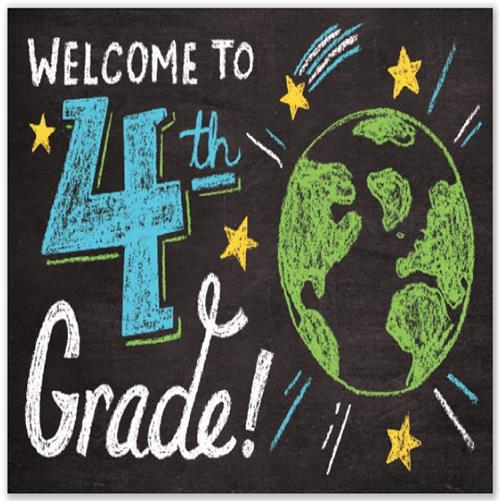Thank you DASH volunteers for providing us with this eye opening learning opportunity.
Sunday, November 6, 2016
What are learning differences?
On Monday, October 24th and Monday, October 31st fourth grade students were able to experience what it might be like for people who learn differently than they do. Thanks to the efforts of the DASH program volunteers (Disability Awareness Starts Here), students were educated about invisible disabilities and challenged to think differently.
Thursday, October 6, 2016
How does heat move?
Students then learned about convection or the transfer of energy through liquid or gas. Students watched a demonstration of how warm and cold water circulate. A fish tank was set up in the classroom with a hot plate under one side and a cold pack under the other side. Two drops of blue food coloring were placed on the cold side and two drops of red food coloring were placed on the cold side.
Can you predict how the cold and warm water moved?
Here are a few examples of how the students captured their learning.
Grade 4 2016 Massachusetts Science and Technology/Engineering Curriculum Framework
4-PS3-2: Make observations to show that energy can be transferred from place to place by sound, light, heat, and electric currents.
Thursday, September 29, 2016
Navigating our way around the Topsfield Fair
How will students be able to find their way around the Topsfield Fair? By using their map skills, of course!
On Friday, Team Gibbas students practiced their map skills in a fun way by using the official Topsfield Fair map. Students were given a map story about visiting The Topsfield Fair and were asked to navigate to specific locations using the compass rose, the legend, and the index.
On Friday, Team Gibbas students practiced their map skills in a fun way by using the official Topsfield Fair map. Students were given a map story about visiting The Topsfield Fair and were asked to navigate to specific locations using the compass rose, the legend, and the index.
Grade 4 Common Core Standards
History & Geography
2. Interpret a map using information from its title, compass rose, scale, and legend. (G)
Friday, September 2, 2016
It's almost here!
I am looking forward to meeting you all!
Warmly,
Mrs. Gibbas
Wednesday, August 10, 2016
Welcome to Fourth Grade
Hello incoming Team Gibbas members,
Are you starting to get excited about fourth grade? I know I am! I can't wait to meet you all and begin our fourth grade adventure together!
During the first weeks of school we will be spending time on some fun activities to get to know each other, get to know the classroom, and get to know Proctor School. As you prepare for "Back to School", try to gather a few things-
- 5 items for a "Me Bag" - these items will help you tell your teammates about you
- family photos and pictures of things you like which will be used to decorate your writing journal
I will post our schedule as soon as I have it, which will probably be September 1st. In the meantime, if you have any questions feel free to email me at agibbas@topsfieldps.org.
See you on September 6th!
Mrs. Gibbas
Monday, June 20, 2016
Off to 5th grade!

Friday, June 17, 2016
Monday, May 2, 2016
Explaining Everything about the Midwest Region
Grade 4 Social Studies Standards
Regions of
the United States
4.10 Identify the states, state capitals, and major
cities in each region. (G)
4.11 Describe the climate, major physical features,
and major natural resources in each region. (G)
4.12
Identify and describe unique features of the United States (e.g., the
Everglades, the Grand Canyon, Mount Rushmore, the Redwood Forest, Yellowstone
National Park, and Yosemite National Park). (G)

Friday, April 1, 2016
What are the benefits of an Assembly Line?

Wednesday, March 16, 2016
Fourth Grade Wax Museum

Wednesday, March 9, 2016
Read In
Keep up the great work Team Gibbas!

Wednesday, February 10, 2016
100 years old?
February 11, 2016 marked the 100th day of school for Team Gibbas students!
To commemorate this special day, each student was transformed into a one hundred year old by using the Aging Booth app! Students then practiced their creative writing skills and wrote to the prompt, "Imagine that on February 11th you woke up and you were one hundred years old! Write a story about your day as a fourth grader in a one hundred year old body."

Monday, February 1, 2016
Ball Machine
Created with Padlet
Learning Standards: Technology/Engineering Grades 3 - 5
1. Materials and Tools
Central Concept: Appropriate materials, tools, and machines extend our ability to solve problems and invent.
1.3 - Identify and explain the difference between simple and complex machines.

Monday, January 25, 2016
Gummy Bear Science
So, what solution made the gummy bear expand the most? Ask Team Gibbas students!
·
Keep accurate records while conducting simple
investigations or experiments.

Wednesday, January 13, 2016
Change is Simple
Essential Question: Why are some animals and ocean creatures endangered?
On Thursday, January 7th Team Gibbas students were treated to an interactive exploration of endangered animals by Change is Simple, an environmental education company. Students were given photos of endangered animals and asked to identify something that they had in common with the endangered animal, then students learned about each animal's habitat, diet, and why it was endangered. Finally, students played a game much like musical chairs, called "Shrinking Environment" whereby students raced to find a safe place to live on a large world map when available habitats kept shrinking due to factors such as pollution and global warming.
Thank you Topsfield Educational Foundation for bringing us this fabulous program!
Change is Simple from Andrea on Vimeo.
Massachusetts Curriculum Frameworks- Life Science (Grades 3 - 5)
Adaptations of Living Things
7. Give examples of how changes in the environment have caused some plants and animals to die or move to a new location (migration).

Subscribe to:
Comments (Atom)




































